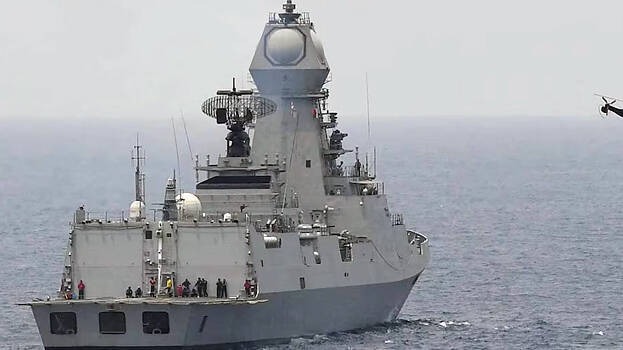

The Indian Navy has once again proved its mettle as it foiled an attempt by Somali pirates to hijack a cargo ship in the Arabian Sea and hold its crew hostage to demand ransom. Realizing the navy's operation, the pirates abandoned the ship and fled for their lives. Twenty-one crew members including fifteen Indians on board are safe. The ship was diverted to the coast of Bahrain. In recent days, there has been an increase in attacks by Somali pirates and Houthi rebels in the Arabian Sea. Houthi attacks in the Red Sea have escalated to an unbearable level. To escape from them, the ships are now changing their route and moving through the Arabian Sea. Even there, ships are facing massive threats. Three ships have been attacked by pirates in the last ten days. Timely interventions by the Indian Navy foiled the pirates' attempts.
Somali pirates and Houthi rebels, who have been making huge sums of money by hijacking cargo ships, pose a huge threat to global shipping. Our Navy and Coast Guards are always on alert in the Indian Ocean and Arabian Sea to counter any acts of violence at sea. Many hijack attempts are thwarted by the presence of the navy. Accompanied by state-of-the-art warships, the Navy not only rescues cargo ships but also their crews from pirates. The Liberian oil tanker that pirates were trying to hijack in the Arabian Sea was attacked by half a dozen armed pirates. On receiving the distress message, the Navy's INS Chennai, which was patrolling the area, rushed to the scene. The aircraft that took off from the ship circled over the hijacked ship and repeatedly warned the pirates that if they did not abandon the ship, they would face retaliation. It is understood that the pirates could not stand up to the warning of the Indian Navy and escaped. The Indian success story in the Arabian Sea suggests that it is preferable to counter the ignoramuses in their own language.
This event is also a sign of the increasing power of India at the international level. Many shipping companies have left the Red Sea and chosen the Arabian Sea route in the wake of increasing Houthi attacks. It can be said that the availability of the overwhelming protection of the Indian Navy here is what prompts them to change the route. Abandoning the Red Sea route in favour of the Arabian Sea route is a costly arrangement, but it is an acceptable route change considering the safety reasons. Apart from the threat of piracy, naval surveillance is also effective in preventing the smuggling of drugs and gold. A large amount of drugs are smuggled from Pakistan and Afghanistan through the Arabian Sea. In the recent past, drugs worth several thousand crores of rupees have been sunk in the sea along with the ship.